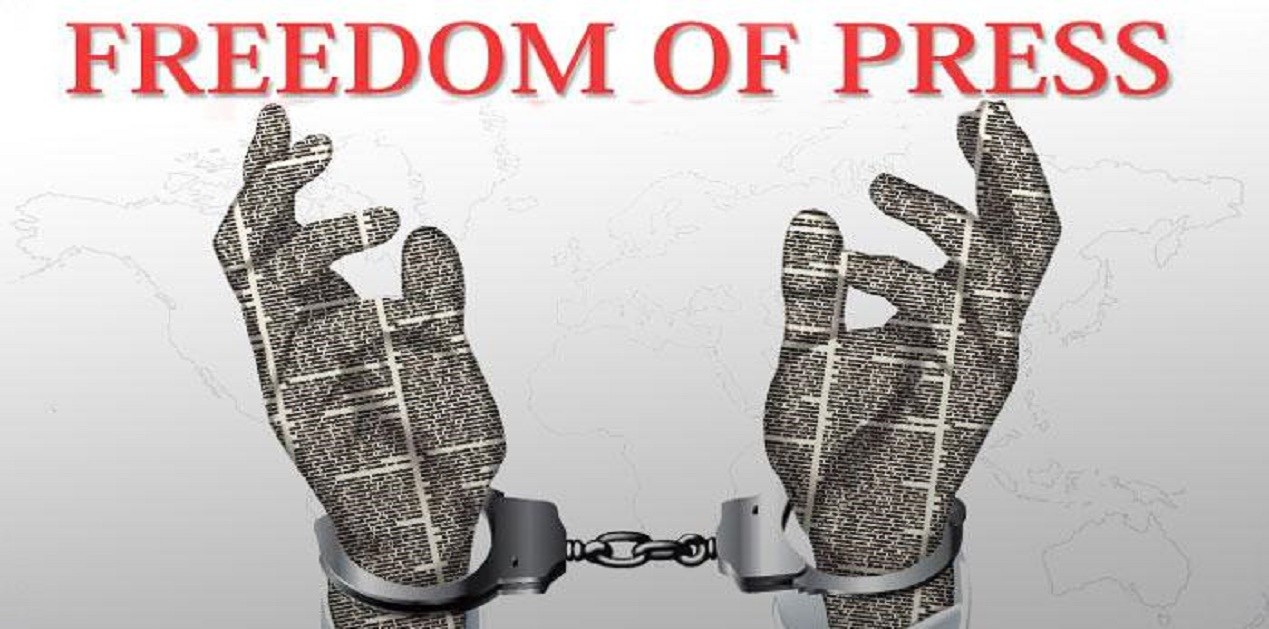
Being a journalist in Pakistan is the most dangerous profession–the state is determined to hunt down anyone who challenges the state and its policies, even on small matters. Journalists have been brutally killed, abducted and locked up in dungeons, assaulted and threatened, their jobs snatched and forced into unemployment, all for questioning the army and its supporting state structures.
Even the judiciary has not spared journalists. Higher judicial officers have virtually led a manhunt for journalists who had dared to question their judgements, statements and relationship with political and military leadership. The judges are now planning another sweep to net daring writers and journalists in the name of questioning rightly or wrongly judges of higher courts. The same judges are shy of investigating army and ISI officials who have been accused by at least six high court judges in writing of gross intimidation and interference in judicial affairs.
Now Punjab government is planning to come out with a defamation law which is the mother of all such laws, even more regressive than the 2016 PECRA or Prevention of Electronic Crimes Act, 2016 which the then Nawaz Sharif government introduced to kill media criticism. The act fortunately met with an early death due to the widespread protests from journalists and human rights activists. Now, Nawaz Sharif’s daughter, Maryam Nawaz, who is the Chief Minister of Punjab, wants to bring a new defamation law ostensibly to curb `fake news` but to threaten journalists from speaking against her and her party. The proposed defamation law was more severe than the dictatorship-era regulations, with the sole aim of locking up any criticism from social media activists and journalists.
The state institutions, be it the army, the government or the judiciary, there is no escape for a courageous journalist.
Ask Asad Toor, an online journalist, who had the gumption to challenge the judges on their actions and misdeeds. He was promptly locked up and charged with a fake criminal case. He was lucky to escape the prison after a few days. But not Imran Riaz Khan, a vocal television journalist and a supporter of former Prime Minister Imran Khan, who had to spend several months in various prisons, assaulted, fed hallucinating drugs and forced to make videos of confessions before he saw the light of the day. He was arrested in February this year on anonymous charges and remains in prison.
Hamid Mir is one of the most well-known journalists in Pakistan. He has never felt shy of calling a spade a spade and has suffered immensely as a result. Some years ago, he was shot for exposing the army. He is today under severe threats from anonymous persons for supporting the missing Baloch persons.
Early May this year, the annual Pakistan Freedom of Expression and Media Report 2024 pointed out that successive governments, be it the Shehbaz Sharif government supported by the army or the Imran Khan hybrid regime, there was a marked intolerance for online dissent, proclivity to shut down mobile networks on critical days, throttling of internet access, suspension of social media platforms and brutal attacks and harassment of journalists and bloggers, including the murder of four journalists in the last one year.
The report highlighted a total of 104 cases where journalists and other media practitioners were kept on a leash, their freedom to express themselves heavily censored through “murders, physical and online attacks, injuries, kidnapping, threats and legal cases“. The report pointed out that dozens of journalists and bloggers were slapped with legal notices, many locked up in dark cells and others assaulted and intimidated. Besides such state-sponsored intimidatory tactics, non-state actions, with state support, have targeted over 200 journalists, bloggers and other online activists with more than 70 legal notices served to them.
The media activists bemoan government actions to regulate how common people access internet platforms. The Shehbaz Sharif government in 2023 approved legislation, E-Safety Bill and Personal Data Protection Bill, to punish those who post `objectionable` content and global tech firms hosting social media sites. Pakistan’s onslaught against free speech and its practitioners in the media and social media sites is unprecedented, throttling even the last few dregs of democracy left.






